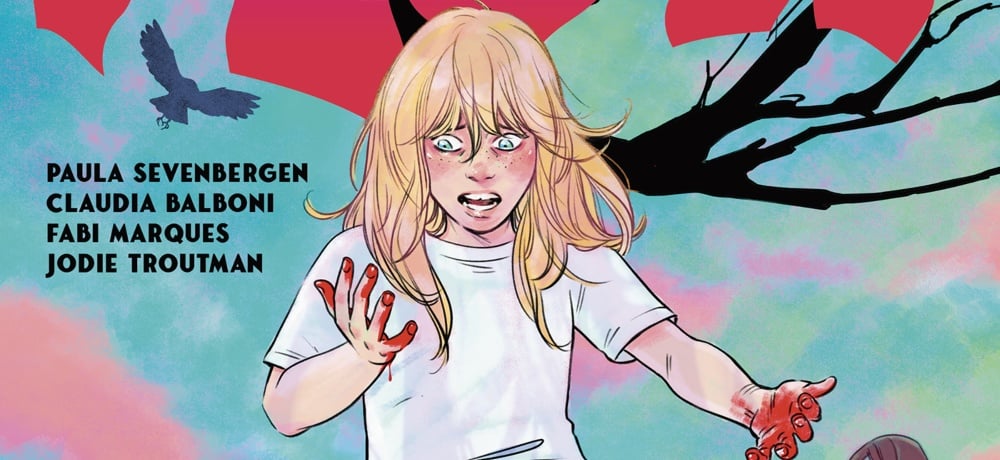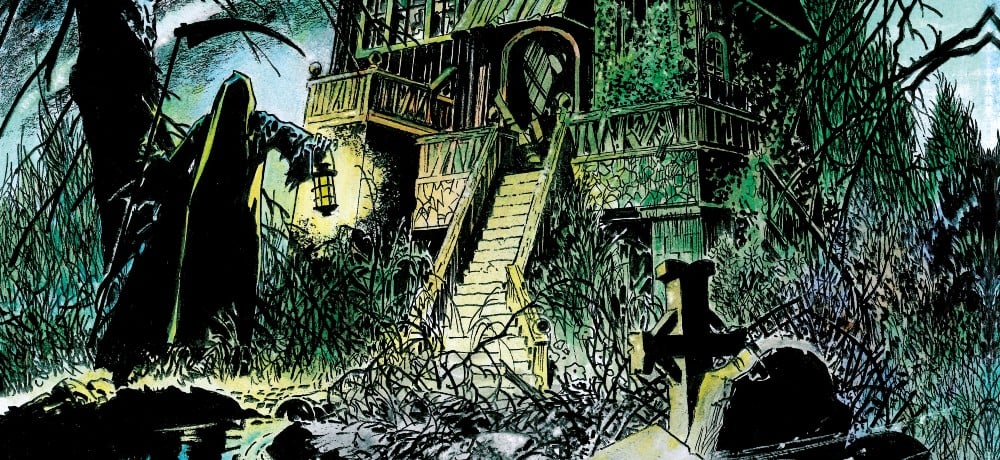





As a longtime fan of Australian cinema, I will be the first to admit that as I watched the opening scene of Luke Shanahan’s Rabbit, I thought I could put my finger precisely on the type of cinematic experience that was coming my way. And boy, was I wrong. My favorite types of films are the ones that keep me guessing, or give me something I haven’t seen before, and Rabbit delivers that in spades. Much more than just a psychological horror movie, Shanahan’s latest is a beautiful celebration of Euro cinema from the ’70s, yet it still feels wholly steeped in this twisted modern reality where nothing is as it seems, and the horrors awaiting viewers go much deeper than just jump scares and gore.
With its booming opening credits and a hauntingly effective score drenched in gravitas, Rabbit immediately sets out to rattle those watching, and that pummeling continues throughout the film’s entire runtime. The film opens with a girl desperately running through the woods away from “something,” as various ominous figures watch from a distance. We learn that this scene is somehow related to Maude (Adelaide Clemens), the film’s protagonist, who keeps having these startling dreams about her twin sister, Cleo, who disappeared a year prior and may have been kidnapped by a group of backroad oddities.
Everyone else has moved on to accept that Cleo has died, but Maude, who is overwhelmed by guilt and consumed by her steadfast belief that her sister is alive. The reason behind her beliefs is that Maude can somehow connect with Cleo telepathically (basically, it’s her own version of Wonder Twins powers), which sets her on a course of discovery, as she’s determined to track down her sister, even if it costs her everything in the end. And once she sets out on her journey, Maude must come to terms with Cleo’s fate, as well as how it relates to her own sense of personhood.
The title of Shanahan’s project is a reference to both a necklace that both sisters wear and their affection for the fuzzy creatures as they grew up together (there’s also a drawing that simply states “I love Rabbit” on it as well). It’s such a subtle touch, especially since the creatures generally become totems of vulnerability in film, and its meaning plays exceedingly well into Rabbit, particularly in the third act when the situation Maude finds herself caught in the middle of gets amped up to an 11. And to say anything more on this would spoil some of Rabbit’s many filmic gifts.
On a visual level, Shanahan and his brilliant crew have done an incredible job of heightening the visuals so that they reflect the film’s evolving mood and atmosphere. There’s an interesting switch that happens once Maude gets to the forest, and we see how Rabbit strips away any warmth that she might be feeling the further she slips away from the world that she knows. This microcosm she enters feels timeless and yet so specifically ’70s that I couldn’t help but think that Rabbit felt like a more color-neutral version of Ingmar Bergman’s Fanny and Alexander (even though that was made in the 1980s, but there’s no denying that Bergman established his filmmaking aesthetic well before that time). There’s some really gorgeous visuals in Rabbit, though, and kudos to cinematographer Anna Howard for capturing it all through her lens.
Shanahan does an exemplary job of giving us some strong female perspectives in Rabbit, making for an entrancing and captivating viewing experience. Clemens shows off her immense range as an actor in Rabbit, as Shanahan pushes her in a myriad of directions emotionally, especially since she’s being tasked with portraying two separate characters here, and she nails the spectrum perfectly. Veerle Baetens also is given an incredible opportunity to explore a deeply flawed, yet genuinely intriguing part of Rabbit’s mystery—we understand her pain to the point where we want to empathize with her, but at the same time, her character is doing these horrifically manipulative and harmful things to those around her, and you hate her all the same.
If you’re expecting a typical survival horror movie (which I’m guilty of, just based on Shanahan’s frenzied opening sequence), think again, as Rabbit expertly blends together several genres—sci-fi, medical horror, and psychological thriller—and goes in some very unexpected directions. As a first-time feature-length filmmaker, Shanahan proves with Rabbit that he’s primed to tackle complicated and nuanced storytelling, and I am eagerly looking forward to whatever he does next as a director.
Movie Score: 4/5
---------
In case you missed it, check here to read more Fantastic Fest 2017 reviews and interviews, and stay tuned to Daily Dead for more live coverage of the festival.